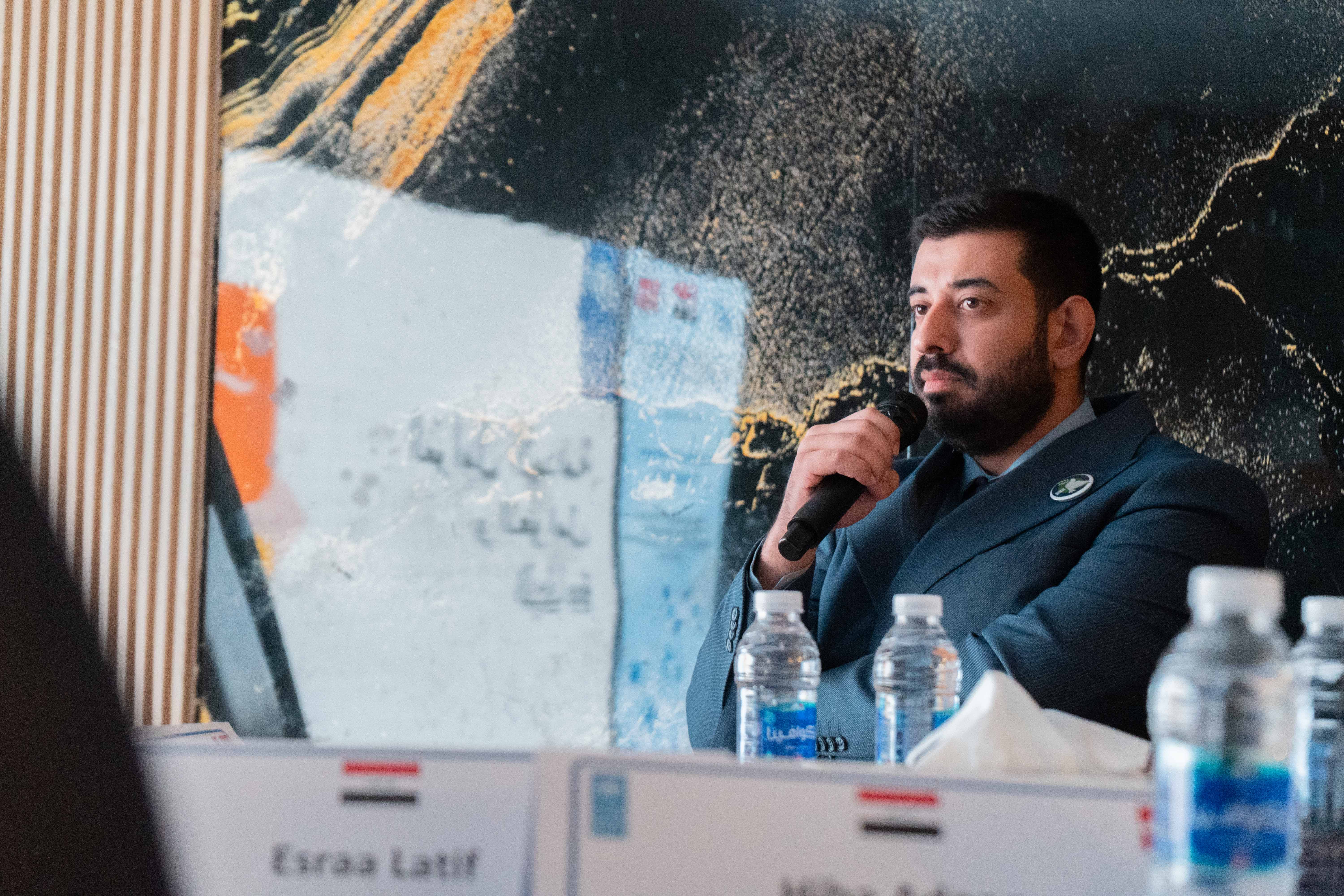Conflict Sensitivity Enabling Social Cohesion
October 17, 2024

Participants at the conflict sensitivity training for Salahaddin and Diyala Governorates
Iraq continues its transition to a more stable, safe, and cohesive country. The country’s progress is however hampered by several factors, including the serious impacts of the war against ISIL—most notably the durable return of internally displaced persons (IDPs). The rapidly changing political and security situation in Iraq, along with limited resources, makes it difficult for non-governmental organizations (NGOs) and local partners in Iraq to make informed, interactive, and context-sensitive programming decisions. This is where a conflict-sensitive approach comes in.
Conflict Sensitivity involves understanding and analyzing how development, humanitarian or peacebuilding interventions interact with conflict dynamics in a specific context. The goal is to minimize unintended negative effects and maximize the positive contributions of activities to sustaining peace. This approach is relevant for all types of interventions, not only in situations of active conflict, but also in contexts of latent violence, protracted conflicts. [1]
Through its Social Cohesion Programme, UNDP has been building the capacity of existing community peace structures, including civil society organizations (CSOs) and local officials, across Governorates in Iraq to integrate conflict-sensitive approaches into social cohesion programming. This project involved three sets of trainings in Anbar, Diyala and Salah Al-Din, Ninewa, and Kirkuk and was made possible with funding from the Government of Denmark.
[1] conflict-sensitivity-in-approaches-to-pve.pdf (pvetoolkit.org)

Nooraldin Al-Hamdani, volunteer coordinator of UNDP’s Youth and Women Volunteer Groups for Peace in Anbar and Executive Director of Peace Organization for Peaceful Coexistence
Nooraldin Al-Hamdani is the volunteer coordinator of Youth and Women Volunteer Groups for peace which were established by UNDP in 2020. Building on this experience, he has established a local NGO in Anbar called Peace Organization for Peaceful Coexistence. The NGO was one of 26 organizations that participated in conflict sensitivity training.
“This training was important to me as the coordinator of two volunteer groups and the founder of one of the local NGOs in Anbar. Before this training, I was working on analyzing conflict in a traditional way, but the new tools presented in this training made me reconsider and will help me plan better how I design and develop social cohesion initiatives in the future.”

Participants from Anbar governorate during case study exercise
The series of workshops provided participants with knowledge on the principles of the Do-No Harm Approach, constructive and destructive factors, impact patterns, and subtlety analysis, followed by group work, presentations, and the development of recommendations and next steps from participants.

Dr.Buthaina Mahmood, Executive Director of Hawa Organization for Relief and Development in Diyala
According to Dr. Buthaina Mahmood, the Executive Director of Hawa Organization for Relief and Development, based in Diyala Governorate, the training will positively impact future projects designed and implemented by her organization.
“In this training, the principles of do-no-harm were presented and explained through practical examples related to our context, especially since our region has been through a series of conflicts that have affected the lives of community members. As a civil society organization, our understanding of the concept of conflict sensitivity and integrating it into our projects while analyzing the constructive and destructive factors will render the impact of our projects more influential in society.”

Talal Murad, Executive Director of Jelan Organization for Care and Rehabilitation in Ninewa
Jelan Organization for Care and Rehabilitation in Ninewa Talal Murad, the Executive Director of Jelan Organization for Care and Rehabilitation in Ninewa, is currently working on a project that promotes peace and resilience in Ninewa, reflected on how he benefitted from this training:
“There were several aspects related to programing that we did not consider before attending this training. Conflict sensitivity was a new topic for our organization, but now after this training we have a clear guidance on how to work on enhancing the constructive factors, analyzing them and integrating them into our programs.”
Altogether, the three workshops were attended by 80 participants from 26 NGOs, 5 local governments, 5 PVE committees, and 10 volunteer groups. Following the workshops, UNDP is sharing a reference guide to support trained participants to implement their learnings. The workshops form an integral part of UNDP’s work to empower local civil society and develop functional collaboration between civil society and local governments. Work to further strengthen civil society and conflict sensitive programming include a partnership with the University of Mosul to conduct in-depth conflict analysis and forthcoming work to support women’s leadership to implement the National Action Plan on UNSCR 1325.

 Locations
Locations